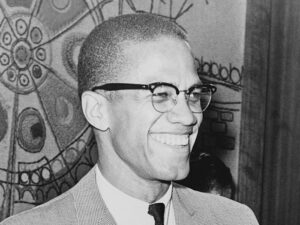Bilal Sunni-Ali was born William R. Johnson on July 13, 1948, in Harlem, New York, and was the youngest child of Robert Lloyd Johnson and Lois Ethel Johnson. Raised in a household filled with love and faith, he shared a close and cherished bond with his three older siblings: Lloyd, Veronica, and Nkromah. On December 30, 2024, Bilal, a well-loved revolutionary, passed away peacefully at his home in Sparta, Georgia, surrounded by his family.
Born into a family of activists, Bilal was deeply influenced by his spiritual father, Saladin Abu Shakur. His revolutionary journey involved periods of being targeted, raided, and even imprisoned – experiences that shaped his family’s understanding of resistance and community. I recently spoke with Bilal’s daughter, Princess MdaiYah EfuaAta Yisrael, about her father. Here are some excerpts from our conversation:
How did your father’s revolutionary spirit and involvement in the community shape your own identity and upbringing?
Growing up, we didn’t fully realize the significance of our parents’ revolutionary work. We knew we were different and were prepared for potential targeting, but it felt normal to us. Our grandfather and spiritual father played key roles in shaping my parents’ activism. We experienced raids, being separated from our parents, and living in hiding, which became part of our early life experience.
Our upbringing was deeply rooted in consciousness, from eating only healthy foods to understanding community dynamics. In New Orleans, our life felt communal and connected. When we moved to Atlanta, we experienced culture shock and faced racism, but our parents taught us valuable lessons about not judging people by appearances.
I didn’t choose to be a revolutionary; I was born into it. We were handcuffed during raids and prison visits as children, so this lifestyle was our reality from birth. While our parents didn’t force us to be exactly like them, their foundation shaped us. Today, each of my siblings is living out their revolutionary spirit in our own unique ways, staying true to the core values our parents instilled in us.
Our parents always emphasized understanding our individual paths while maintaining a commitment to community and consciousness. They allowed us to explore our identities while providing a strong, principled foundation.
What are some of the most cherished memories you have of your father’s love, care, and parenting style?
Some of my most cherished memories of my father include his playful and loving nature at home. Despite being seen as reserved in public, he was a complete jokester with us. Even three days before he passed, he was making jokes, asking my children about cake while barely able to walk.
He was incredibly present as a father. When he disciplined us, it was emotional for me as a daddy’s girl. He would wake us up if the house was dirty, believing we should maintain our home while he worked hard. If one of us didn’t do our chore, we all had to get up and clean, teaching us collective responsibility.
His love for my mother was extraordinary. I witnessed him caring for her during her illness, cleaning her face, brushing her hair, playing music for her, and holding her during her last moments. This showed me what unconditional love truly means.
As a grandfather, he was amazing. He would teach his grandchildren music, play with them, discipline them, and kiss them. He mentored my son, taking him to Jazz Fest and teaching him how to run their family booth, passing down generational knowledge.
Even when I was 40, he would still ask if I was okay and needed anything. He embraced my husband and my sister’s husband as his own sons, especially since they didn’t have fathers in their lives. His protection, love, and commitment to family were unwavering until his last breath.
These memories show a father who was not just present but deeply invested in nurturing, teaching, and loving his family unconditionally.
How has the experience of caring for a terminally ill loved one impacted your perspective on life and family?
Caring for my father during his final months was a profound and transformative experience. When he was diagnosed with congestive heart failure, we came together as a family to support him. We built him a house on our 110-acre land, ensuring he could stay close to family and comfortable.
When he decided he didn’t want to return to the hospital, we respected his wishes and set up hospice care at home. I converted his bedroom into a hospital room, just as I had done previously for my mother. This experience taught me the importance of honoring a loved one’s wishes and providing dignified, compassionate care.
The last few months were beautiful. Despite his declining health, my father maintained his sense of humor and connection with family. My children stayed with him, and he continued to interact and joke with them. When he was passing, all of us were on FaceTime, holding his hand and talking to him. He remained cognizant until just hours before his death, which was a blessing.
This experience reinforced the importance of family unity, love, and being present for each other during life’s most challenging moments. Watching my father’s peaceful passing, surrounded by love, showed me that death can be a sacred, intimate experience when family comes together.
It also deepened my appreciation for the cycles of life – how we care for our parents as they cared for us, and how love transcends physical limitations. The experience was both heartbreaking and profoundly beautiful, teaching me about resilience, love, and the deep bonds of family.
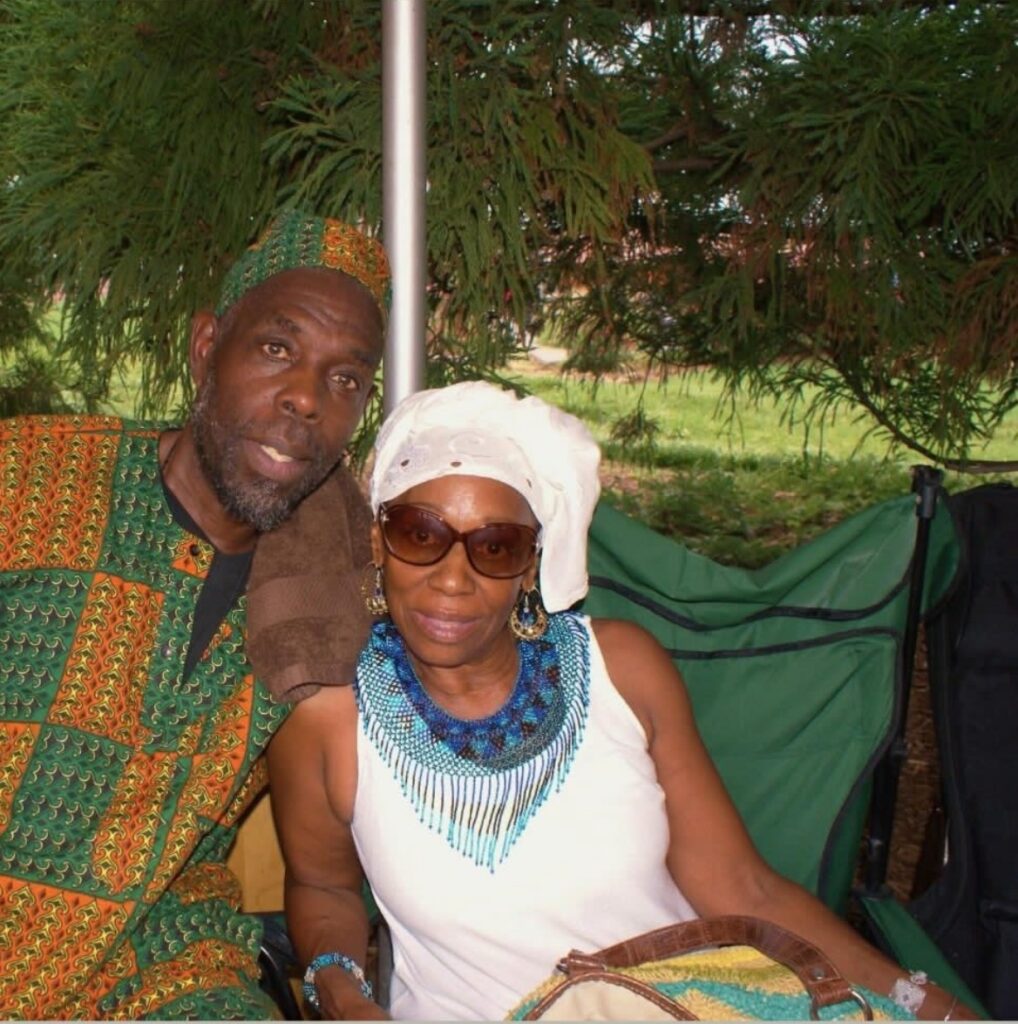
Family and Community
Bilal and his wife, Fulani, were cultural icons. I met them in the mid-90s after my transformation into consciousness and afrocentricity, before becoming a Muslim. I experienced my first Kwanzaa party at their home in West End Atlanta and met many well-known cultural activists, icons, and artists through them, including my first husband, Yusuf Abdul-Khaaliq Rasheed, a prolific artist, writer, historian and author, and teacher. The 90s were a vibrant time for black arts and culture in Atlanta, and they were an intricate part of its fabric!
As parents, Bilal and Fulani created a unique family environment that balanced strict discipline with profound love and individual exploration. They raised their children in a conscious, culturally-rooted household, teaching them about community, health, and spiritual awareness. Their family life spanned multiple locations, including New Orleans, Atlanta, and Belize, always maintaining a strong sense of cultural connection.
Bilal and Fulani’s marriage was a profound testament to unconditional love and deep commitment. His relationship with her transcended traditional partnership, embodying a revolutionary love that was both tender and transformative. According to Princess, throughout their life together, he demonstrated an extraordinary level of care and devotion, particularly evident during her illness. When his wife faced serious health challenges, Bilal became her most dedicated caregiver, performing intimate acts of love with remarkable gentleness – cleaning her face, applying oils, brushing her hair, and playing music that brought her comfort. His most poignant moment came during her final breaths, when he tenderly held her, a gesture that spoke volumes about their lifelong connection.
Their partnership was characterized by mutual respect and collaborative parenting. While his wife was often the family’s disciplinarian, Bilal provided a balanced, nurturing presence. Their approach to raising children was unified, creating a home environment that was both structured and loving. Their relationship served as a powerful example to their children, demonstrating that love is an active, continuous commitment that requires presence, compassion, and unwavering support. For their daughter, Princess, witnessing this love was transformative, setting a profound standard for partnership that would influence her own understanding of marriage and family.
Even in their later years, their bond remained strong, with Bilal continuing to care for his wife with the same depth of love and attention he had shown throughout their decades together. Their relationship was not just a marriage, but a revolutionary act of love that transcended personal connection and reflected their broader commitment to community, family, and spiritual growth.
Legacy of Mentorship
A passionate believer in youth empowerment, Sunni-Ali dedicated significant time to mentoring young people. He taught his grandchildren practical skills like managing their family’s Jazz Fest booth and shared wisdom about cultural preservation and community engagement.
Personal Characteristics
While publicly perceived as reserved, Sunni-Ali was a playful, loving father and grandfather. His sense of humor remained intact even during his final days, demonstrating his resilient spirit. His care for his wife during her illness and his continued involvement with his children and grandchildren showcased his deep commitment to family.
Mentored by Baba Bilal
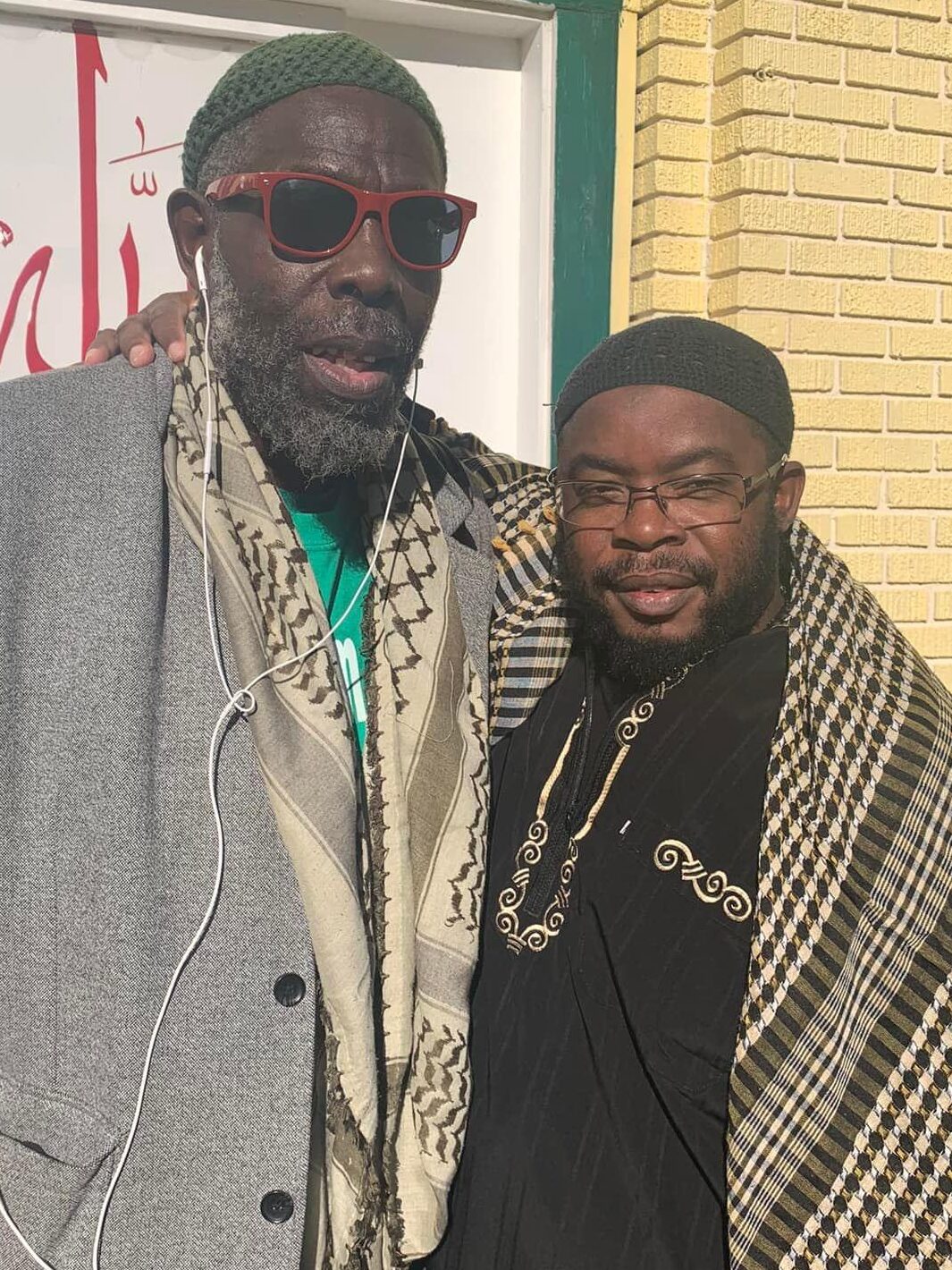
I also had the chance to speak with Brother Mustafa, a 46-year-old violence interrupter and community health worker, who shared a deeply personal account of how Bilal became a pivotal father figure in his life. Having served 26 and a half years in prison, Mustafa’s journey of transformation was significantly shaped by Bilal’s guidance and mentorship.
From Incarceration to Community Transformation
Mustafa’s life story is a powerful narrative of personal redemption and community service. At just 17 years old, he was incarcerated for taking someone’s life and faced a 26.5-year prison sentence. During his time in prison, a profound transformation began.
While incarcerated, Mustafa was introduced to Islam by another elder who was a friend of Bilal, and eventually, they connected. It was during this period that he began to understand himself as a “New African” – a concept of cultural identity and self-determination. Throughout Mustafa’s imprisonment, Bilal provided critical mentorship, engaging in deep political education and helping Mustafa understand his identity, history, and potential for community service.
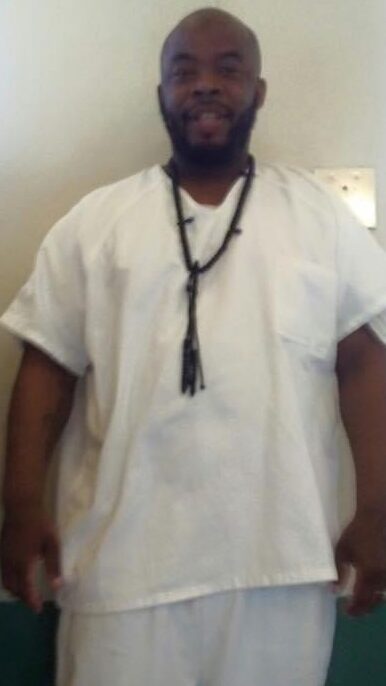
Released on November 10, 2021, Mustafa immediately committed himself to positive community impact. He became a certified violent interrupter, community health worker, and violence prevention professional. Working with high-risk populations, Mustafa now dedicates his life to preventing gun violence and supporting individuals transitioning from what he calls a “criminal mentality to a revolutionary mentality.” His work embodies the principles of transformation and community healing that Bilal taught him.
At 46 years old, Mustafa represents a powerful example of personal redemption. He transformed his past experiences into a mission of community service, proving that personal growth and societal contribution are possible regardless of previous circumstances. His journey illustrates a profound truth: with proper mentorship, education, and personal commitment, individuals can become agents of positive change in their communities.
His influence in mentoring Mustafa is just one of countless examples of how Bilal was more than just an activist – he was a multifaceted man deeply committed to community liberation. A former Black Panther and member of the Black Liberation Army, he was also actively involved in the Imam Jamil Action Network, consistently advocating for Imam Jamil and other political prisoners and championing the concept of “free them all.” His approach to activism went beyond mere rhetoric, focusing on political education and consciousness-raising.
In speaking with Mustafa, it was very clear how Bilal helped him develop a nuanced understanding of identity. He taught Mustafa about being a “New African” – a concept rooted in the 1968 convention of 500 black organizations – emphasizing the importance of maintaining cultural identity while working towards collective liberation. This mentorship was about more than political ideology; it was about personal transformation and community empowerment.
Mustafa’s current work as a violence interrupter directly reflects the lessons learned from Bilal. He now dedicates his life to preventing gun violence, supporting those who become politically conscious, and continuing the work of community transformation. Bilal’s legacy is not just about past achievements, but about the ongoing work of liberation, education, and community building. Through mentors like him, people like Mustafa find the path to personal growth and collective healing. This is a rich and meaningful contribution and a form of sadaqa jariyah that can benefit Bilal in his grave and the Hereafter, inshaAllah. May Allah reward him!
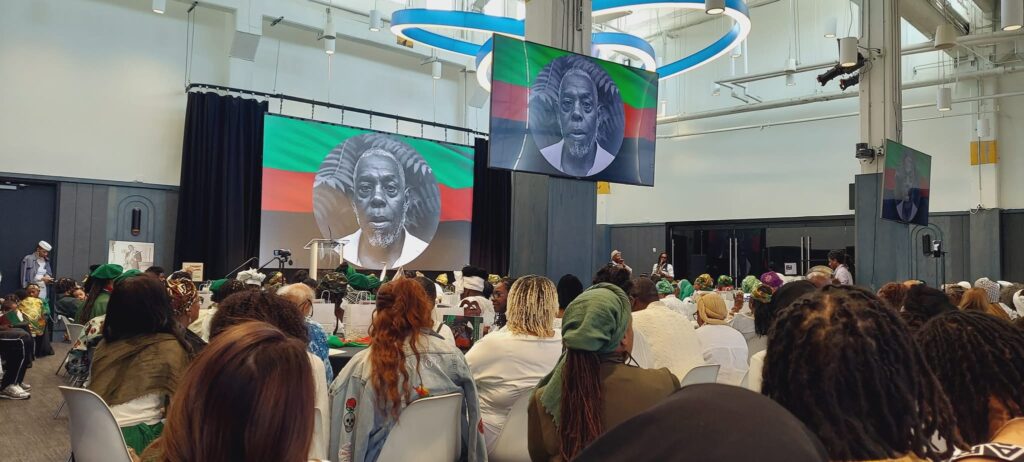
A festive and heartwarming Celebration of Life was held on March 23 at The Gathering Spot in Atlanta to remember the great heart, spirit, and contributions of Bilal. Filled to capacity, it featured emotional speeches from his children, musical performances, and reflections on his life’s work. Attendees wore green and white, colors symbolizing both prophetic tradition and ongoing struggle for freedom.
As Bilal always emphasized, education remains the “passport to the future” – a principle that continues to inspire and guide those committed to meaningful social change. His life was a powerful narrative of revolutionary love, extending beyond political activism to encompass family, mentorship, and personal connection. His legacy continues through his children and grandchildren, who carry forward his principles of conscious living and community engagement.
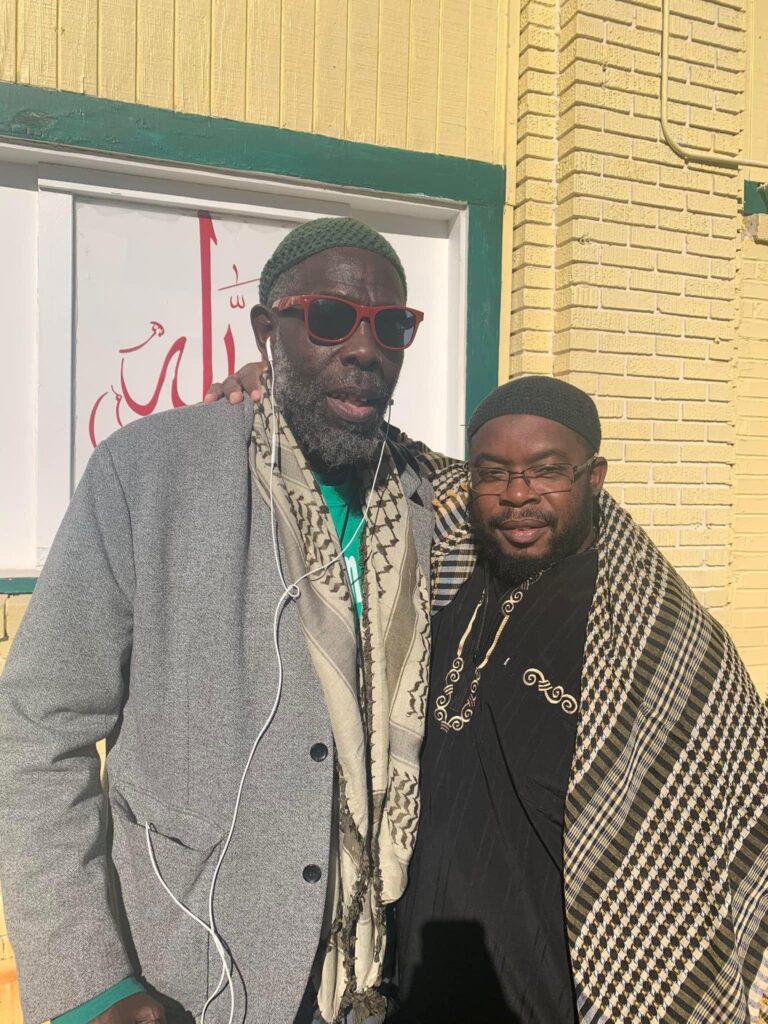
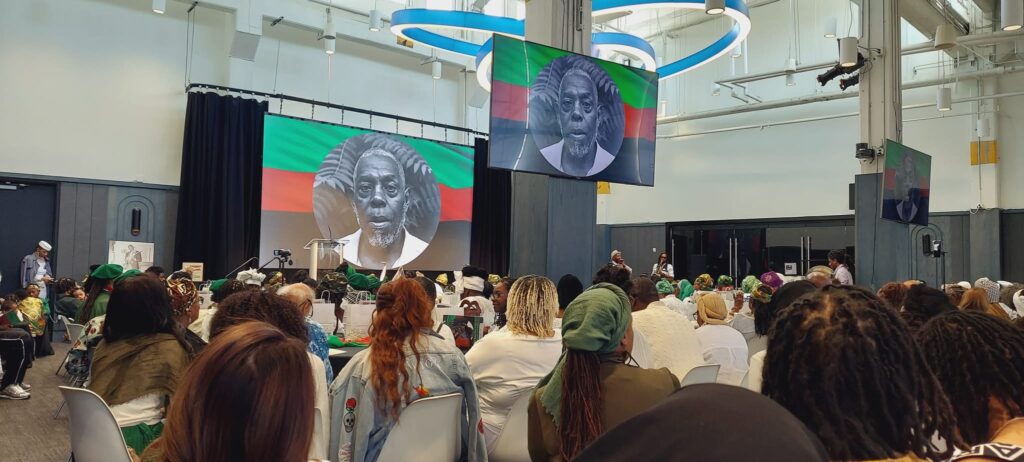
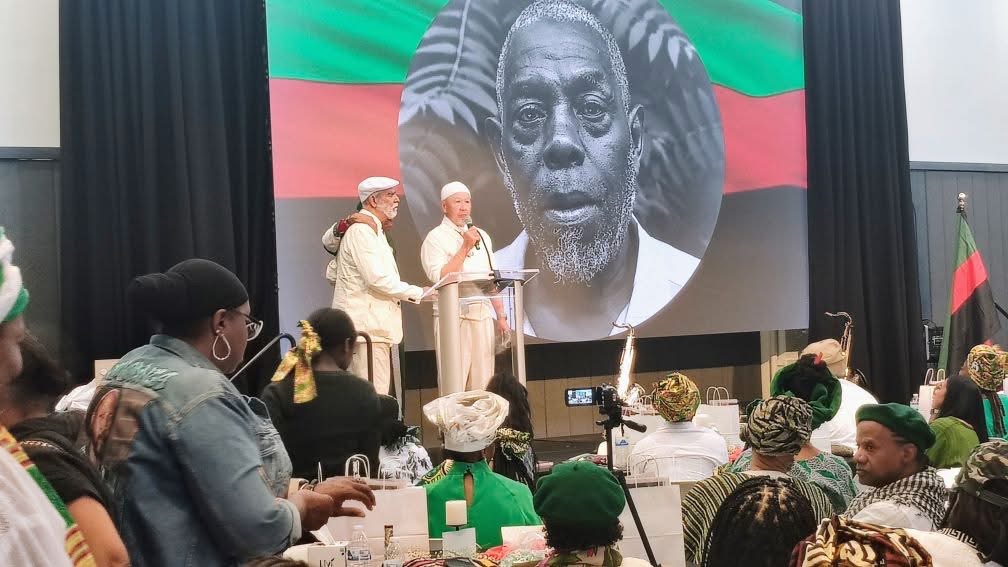
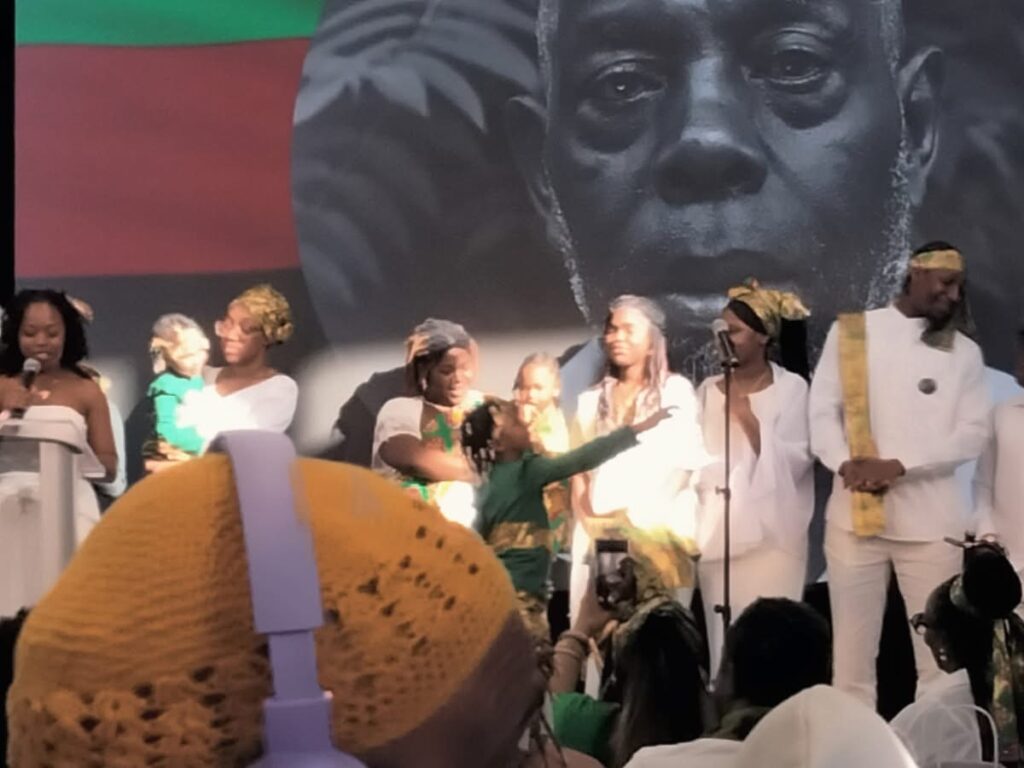
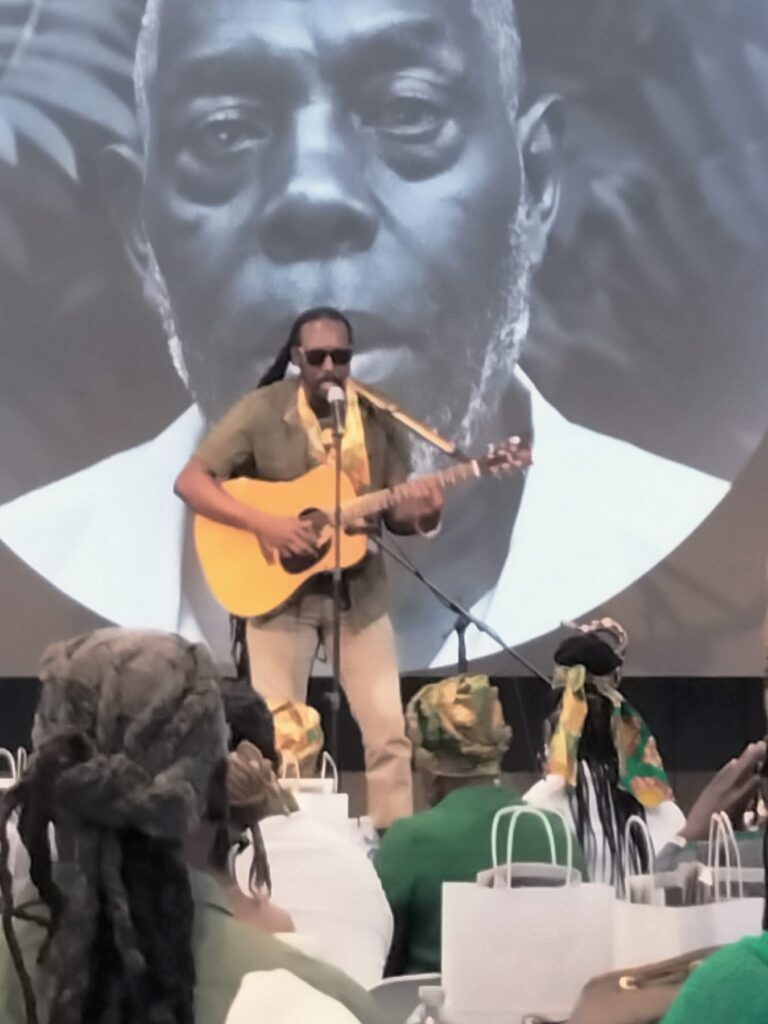
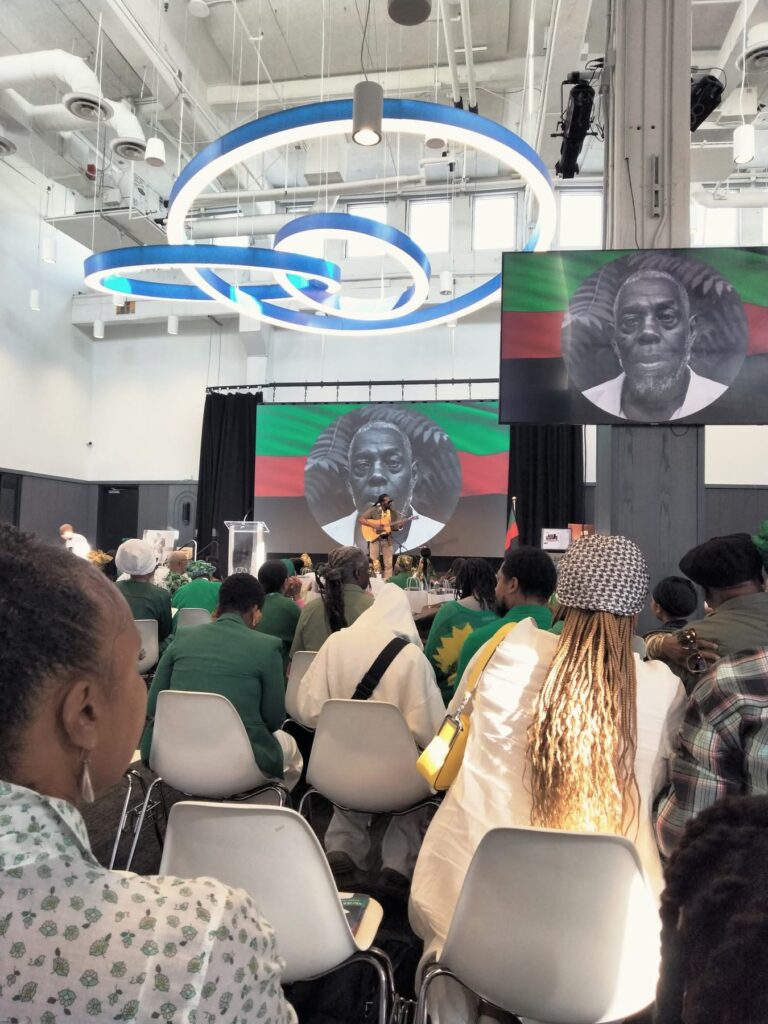
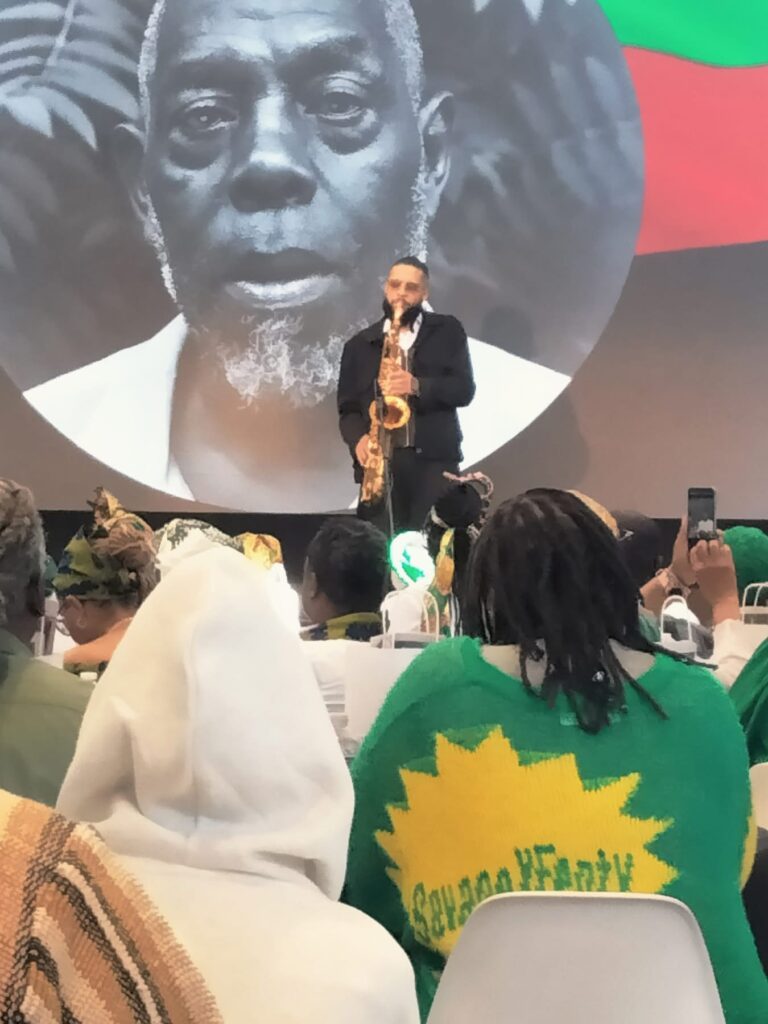
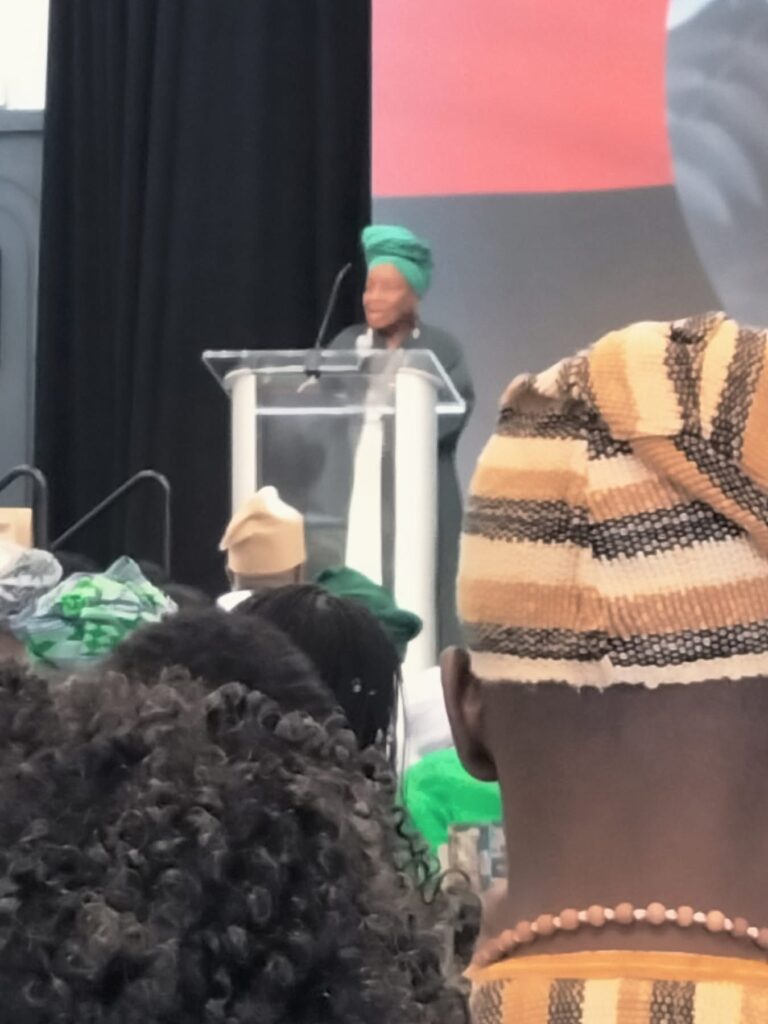
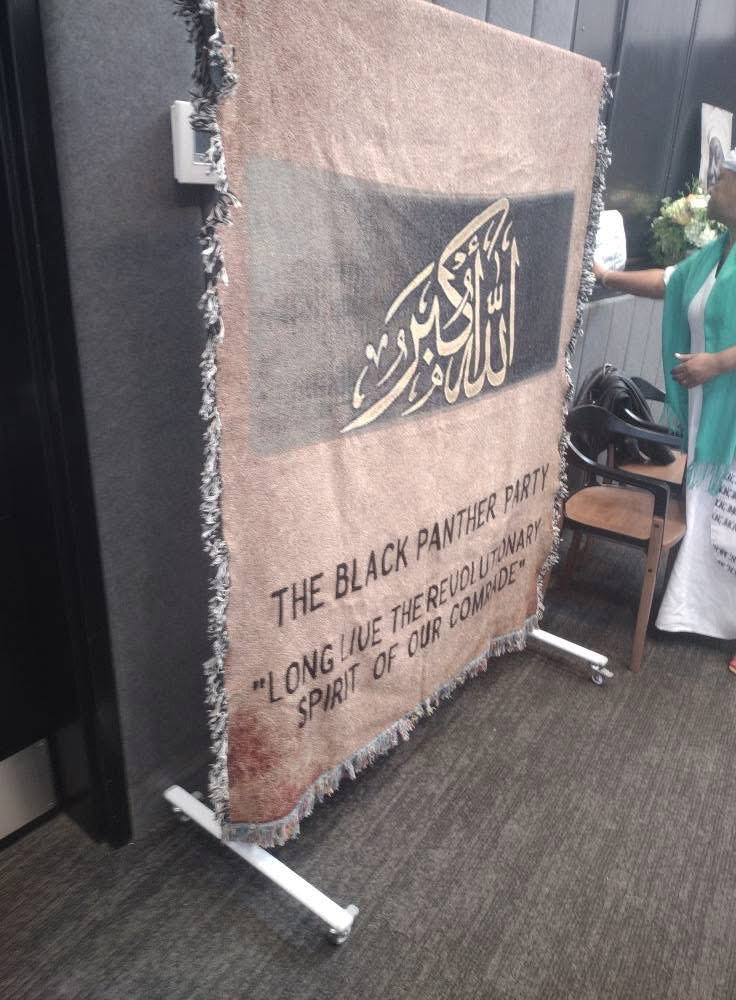
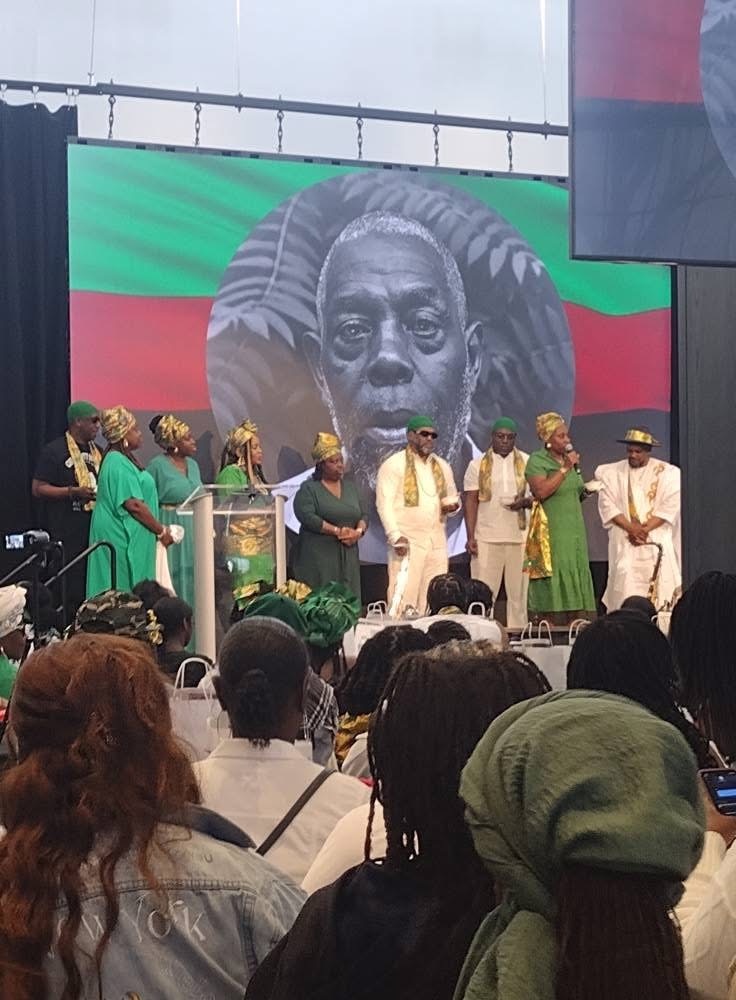
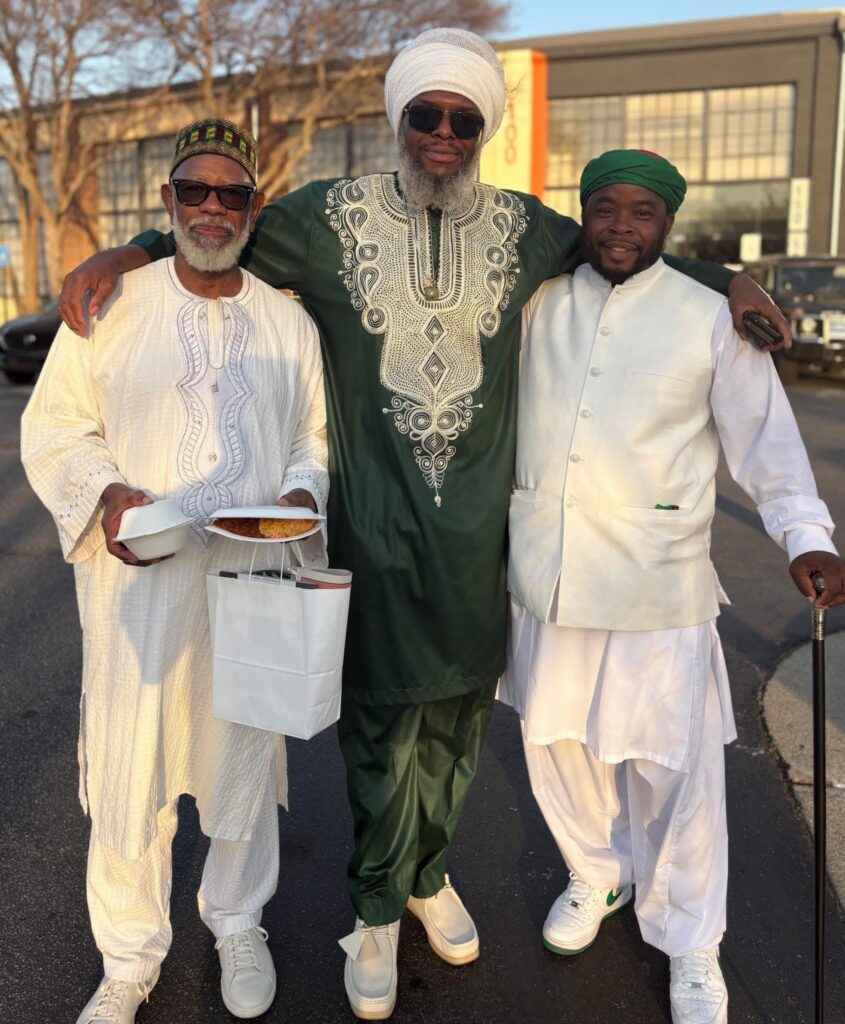
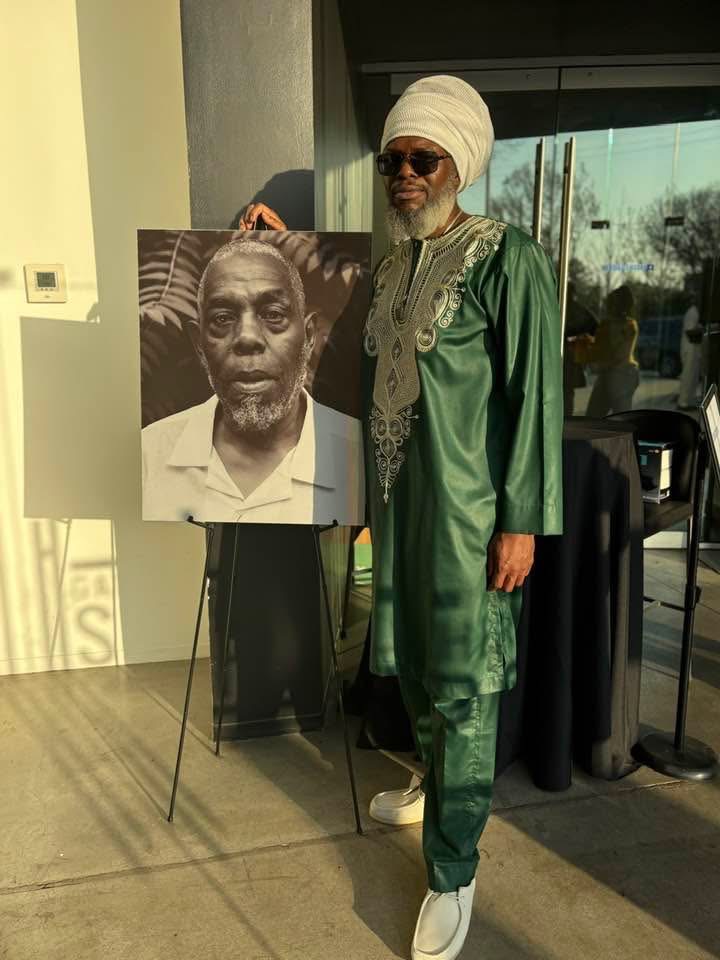
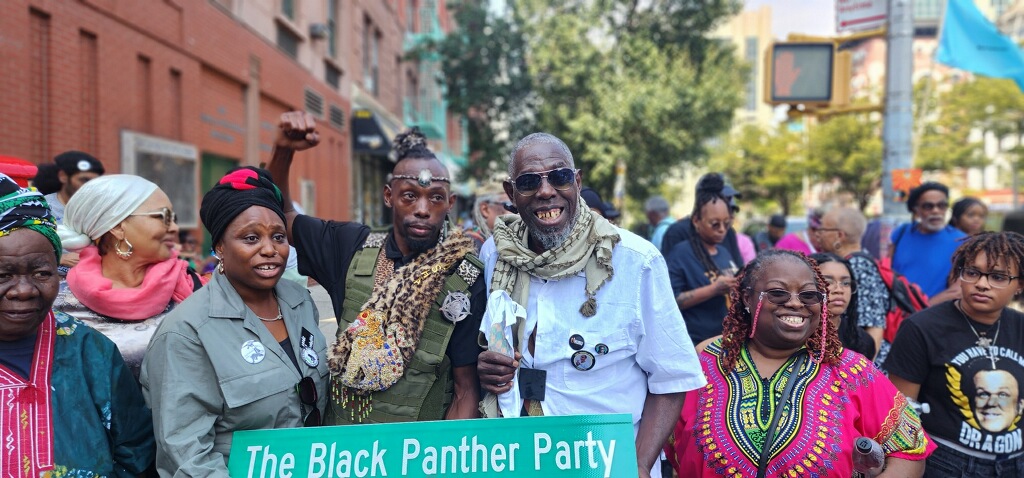
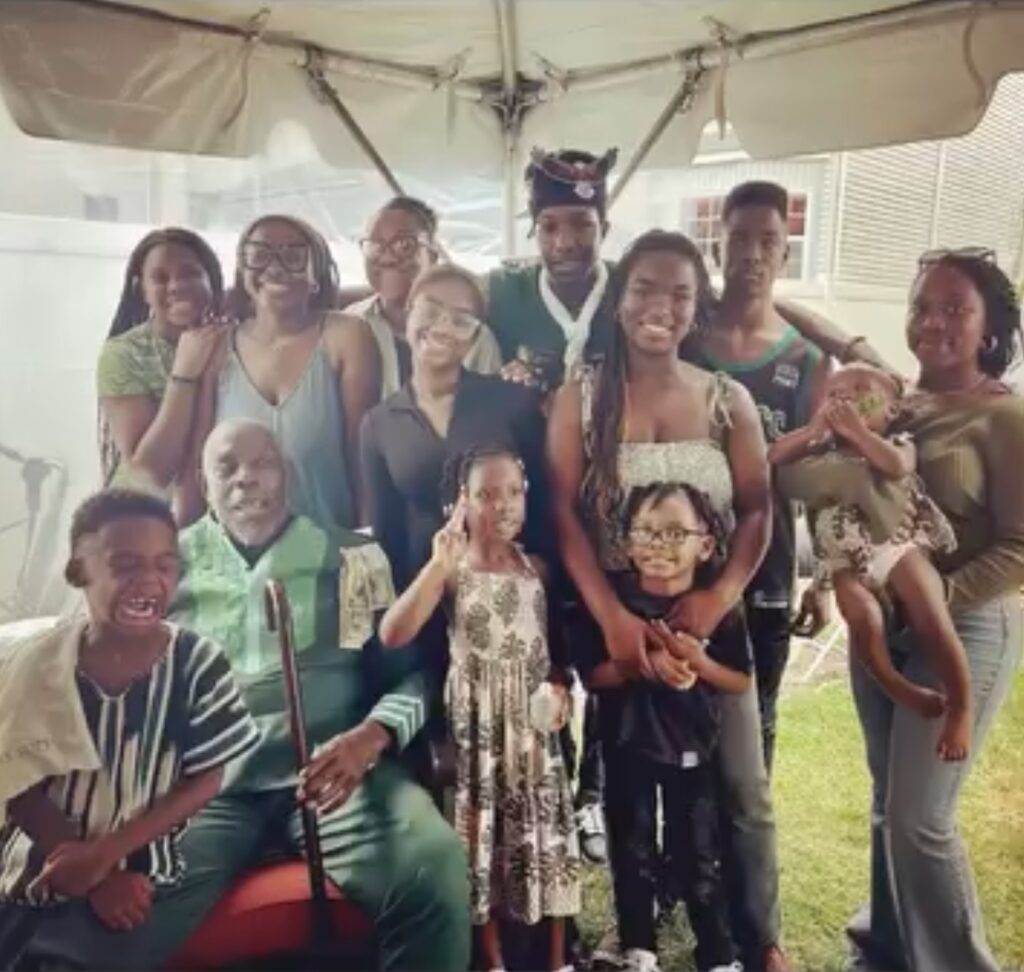


Akanke is a native of Atlanta who now resides in Dayton, Ohio. She has also lived in Bahrain, Saudi Arabia, and Grenada, West Indies. She discovered Islam in 1994, and her faith, spirituality, and personal development have been the driving force in her life ever since. A graduate of Georgia State University with a degree in Communication, Akanke focused on film, TV, and cultural anthropology during her studies. Her career is diverse, and her interests span various media platforms. From producing TV and radio shows to creating documentaries, coaching individuals towards empowerment, creating and exhibiting unique abstract paintings, providing public speaking guidance, delivering leadership training, and lending her voiceover talent to various projects, she strives sincerely to make a lasting and authentic impact wherever she goes. Akanke has been a dedicated supporter of MANA since 2007, currently serving as the organization’s Board Vice President. In this role, she plays a key part in shaping the organization’s vision and strategy. Additionally, she serves as the part-time Communications Director, where she excels in crafting compelling communication tools, including newsletters, articles, graphic designs, and social media campaigns. Through her work with MANA, Akanke continues to make a positive difference, using her talents and passion to uplift and inspire others.



